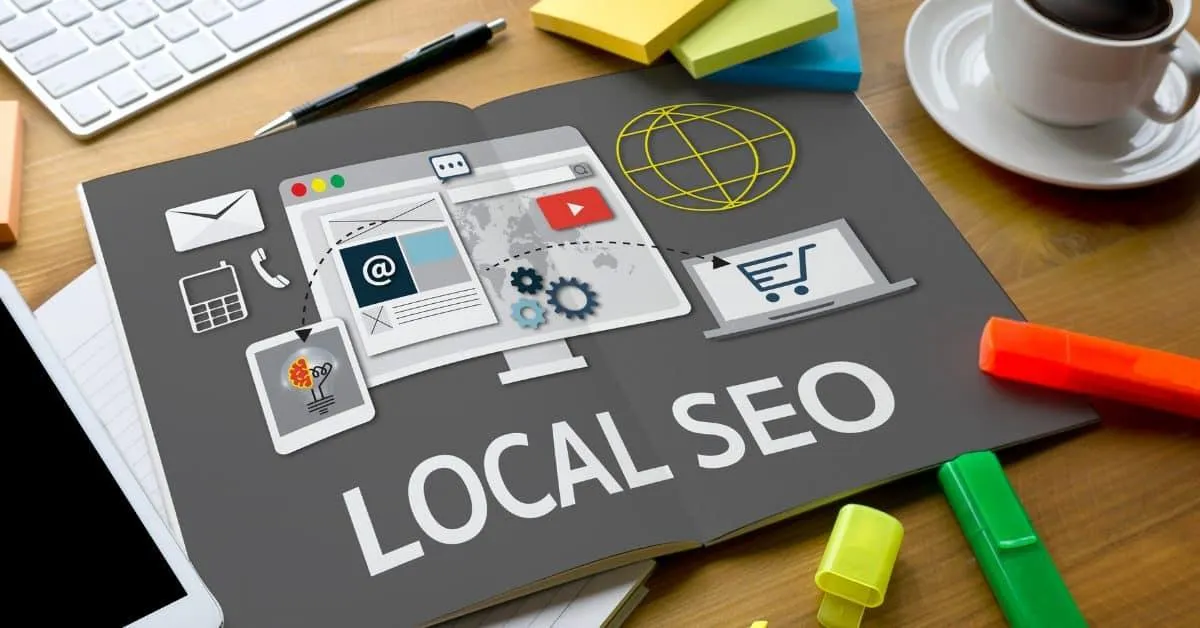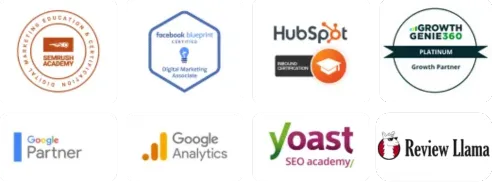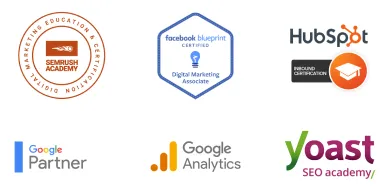TO LEARN IS TO GROW
Learning Center
We do our research and publish our results. Should probably call this the Growing Center.


Important Local SEO Ranking Factors for Your Business
Local SEO ranking is essential for businesses, particularly SMEs that cater to their local communities and nearby areas.
Search Engine Optimization
Thanks to search engine optimization or SEO, businesses can have international reach–provided that they use the right keywords and phrases, backlinks, and other factors that will propel their ranking on search results. Nonetheless, this digital marketing strategy remains an essential tool for companies catering to their local communities and the nearby area.
According to a recent study, about 97% of search engine users search local companies, proof that for small- and medium-sized enterprises or SMEs, SEO is not an option but a necessity that will allow them to remain competitive amidst this crowded market.
Contrary to popular belief, SEO is not just about increasing your website traffic. While growing traffic is one of the goals of a digital marketer, the quality of the traffic is a more important goal.
In SEO, high-quality traffic comes from the visitors who are the most likely to purchase or sign up for a service based on their demographics and online activities.
What Is Local SEO?
SEO is a digital marketing technique in which the goal is to improve the ranking and visibility of your website. It is also referred to as “organic” or “natural” because the marketers are not paying the search engines or platforms to show their adverts, sales pitch, or content.
Meanwhile, local SEO also works just like the “standard” SEO, although the goal is more “hyper-focus”–reach the target market based on their location or proximity to the business.

How Google Determines Local Ranking
Since 2010, Google’s global share of the search engine market is around 90%. As a result, the vast majority of SEO techniques are geared toward “pleasing” the search giant’s “crawlers” or “bots,” which are robots that collect documents from the web to rank pages based on their relevance, keywords and phrases, loading speed, and other factors.
But when it comes to local results, the Google “bots” focused on three main factors: relevance, distance, and prominence. It allows search engine users to “find” you when they type their queries in the search box.
Relevance. It means that Google only matches local business websites that are relevant to the search engine users based on their queries. For example, a person looking for a nearby fitness gym will most likely see search results showing gym and sports clubs, as opposed to, say, a list of local barbershops.
To ensure that your website is relevant based on Google local search, always include your business address, contact details, and other information (which are keywords and phrases your target customers are using) on your site.
Distance. Location accuracy allows Google, Twitter, Foursquare, and other apps to track you unless you change your location setting. This allows search engine tools and apps to recommend the local businesses in proximity with the user.
Prominence. The Google “bots” are partial to famous businesses, especially becoming a local favorite or a “household name.” As a result, local Google searches often include landmarks, historic hotels, and famous stores.
In addition, Google takes into account the amount of information or lack thereof about a business. This means that online reviews about your company or product, “mentions” of your business, and backlinks will all have an effect on your local search result ranking.
The search engine giant has previously revealed that it uses around 200 factors to rank web pages; however, it stays mum about the exact ranking process.
How to Optimize a Website
1. Optimize Google My Business.
Google My Business is the search engine giant’s way of managing online business profiles. You can use this free tool to promote your business on Google’s Search and Maps by enlisting your business, filling out all the information required, verifying them, and adding photos.
You can also encourage your customers to share reviews; just make sure that you respond to them to promote genuine interaction. Remember, positive reviews will help Google put you in a better position in terms of search results, while responding to customer reviews and inquiries shows that you value their feedback
Also, make sure that you add your business’s recent contact information and operating hours to help your potential clients find you easily.
2. Ensure a Consistent NAP on Your Website.
Including your NAP (name, address, and phone) on your website will allow the search engine “bots” and your potential customers to find you easily.
To further make it easy for the Google “bots” to index and rank your website, make sure that you use a “crawlable” HTML text instead of an image. Remember, search engine tools cannot “see” photos and videos, only the text.
If your business has multiple locations, ensure that your main NAP on your website matches the one registered in Google My Business. Then, you can add a web page that shows all the contact information and the address of all your branches or satellite offices.
3. Optimize Online Directories and Citations.
When people mention your business on Facebook, Twitter, Instagram, or other social media sites, Google and other search engine tools take notice of this. Thus, you must use these platforms to interact with your target consumers and improve your “relevance” and ranking.
4. Perform a Local SEO Audit.
Remember, SEO is a continuous, endless process, and so you must check your website’s ranking regularly. You can do this by performing a comprehensive local SEO audit through Google My Business Audit, Google Search Console Audit, On-Page SEO Audit, Citation Audit, Competitor Analysis, and Website Audit.
5. Optimize URL, Title Tags, Headers, Meta Description, and Content.
Make sure that every time you post content on your website, it contains the right keywords and/or phrases in the title, header, meta description, body, and even in the URL. Remember, each new content that you post is an opportunity to target a geographic search phrase.
6. Create Local Content.
As a local business, it makes more sense to write about local issues than general or international “affairs.” While generalized topics can help you reach more audience, it is not a “quality” reach because the nature of your business can only serve the local communities and the nearby areas.
7. Ensure Your Website Is Mobile-Friendly.
A recent survey showed that around 61% of all Google searches were via mobile devices, while 78% of these mobile searches led to in-store sales. Nowadays, people use their mobile devices to read reviews, search for directions, and find local businesses.
8. Use Social Media.
When people mention your business on Facebook, Twitter, Instagram, or other social media sites, Google and other search engine tools take notice of this. Thus, you must use these platforms to interact with your target consumers and improve your “relevance” and ranking.
Built for Growth. Backed by 25 Years of Trust.
For over two decades, LOJO has been a trusted partner to hundreds of businesses just like yours. Whether working directly with owners, managers, teams, or boards of directors, our goal remains the same: to be a reliable and results-driven asset to your business.
Over the years, we’ve carefully built a team of experts—each selected for their unique skills, strengths, and personalities. Our clients choose LOJO because they know we genuinely care about their success.
And after 25 years of helping businesses grow, we’re more committed than ever.


Built for Growth. Backed by 25 Years of Trust.
For over two decades, LOJO has been a trusted partner to hundreds of businesses just like yours. Whether working directly with owners, managers, teams, or boards of directors, our goal remains the same: to be a reliable and results-driven asset to your business.
Over the years, we’ve carefully built a team of experts—each selected for their unique skills, strengths, and personalities. Our clients choose LOJO because they know we genuinely care about their success.
And after 25 years of helping businesses grow, we’re more committed than ever.




Matthew Rogers, President
iProspect Check
After spending several months reviewing multiple proposals from several different companies we engaged LOJO to develop a new website that represents our company effectively. We worked initially with Stephen Platte who helped create the scope of the project. Stephen was knowledgeable and always followed up with me on time and as promised.
He "closed the deal" for LOJO with his professionalism, service orientation and easy going approach. Once we signed the contract we were introduced to Jay Kelly who would be the creative lead for LOJO. This was the most challenging part of the project for my company, as there was no shortage of ideas from our side. Jay managed the project flawlessly, and once we had all agreed to the design, Jay introduced us to Eric.
Eric Lay is one of the founders of LOJO. Eric took the design we had developed and brought it to life. We delivered content as quickly as he requested it. Eric kept the project on task and we responded by exceeding every deadline for content. In turn, once provided, literally not a day went by that Eric didn't add the content and take the next step. In just a few weeks we launched our new website. Eric is a pleasure to work with.
His positive attitude and consultative approach really enhanced the experience and made a big difference for us in the outcome of our project. We would welcome you to visit our website to take a look at the quality work of LOJO. We are very pleased with LOJO and look forward to working with them in the future as we pursue an aggressive SEO strategy."
After spending several months reviewing multiple proposals from several different companies we engaged LOJO to develop a new website that represents our company effectively. We worked initially with Stephen Platte who helped create the scope of the project. Stephen was knowledgeable and always followed up with me on time and as promised.
He "closed the deal" for LOJO with his professionalism, service orientation and easy going approach. Once we signed the contract we were introduced to Jay Kelly who would be the creative lead for LOJO. This was the most challenging part of the project for my company, as there was no shortage of ideas from our side. Jay managed the project flawlessly, and once we had all agreed to the design, Jay introduced us to Eric.
Eric Lay is one of the founders of LOJO. Eric took the design we had developed and brought it to life. We delivered content as quickly as he requested it. Eric kept the project on task and we responded by exceeding every deadline for content. In turn, once provided, literally not a day went by that Eric didn't add the content and take the next step. In just a few weeks we launched our new website. Eric is a pleasure to work with.
His positive attitude and consultative approach really enhanced the experience and made a big difference for us in the outcome of our project. We would welcome you to visit our website to take a look at the quality work of LOJO. We are very pleased with LOJO and look forward to working with them in the future as we pursue an aggressive SEO strategy."

Matthew Rogers, President
iProspect Check
The team at LOJO were wonderful to work with. They are well organized and very patient as we worked through our marketing strategy and developed a well thought out and clear action plan at a reasonable price. We will definitely be back for our future campaign needs."

Jon Crosby, Founder
Dazil

